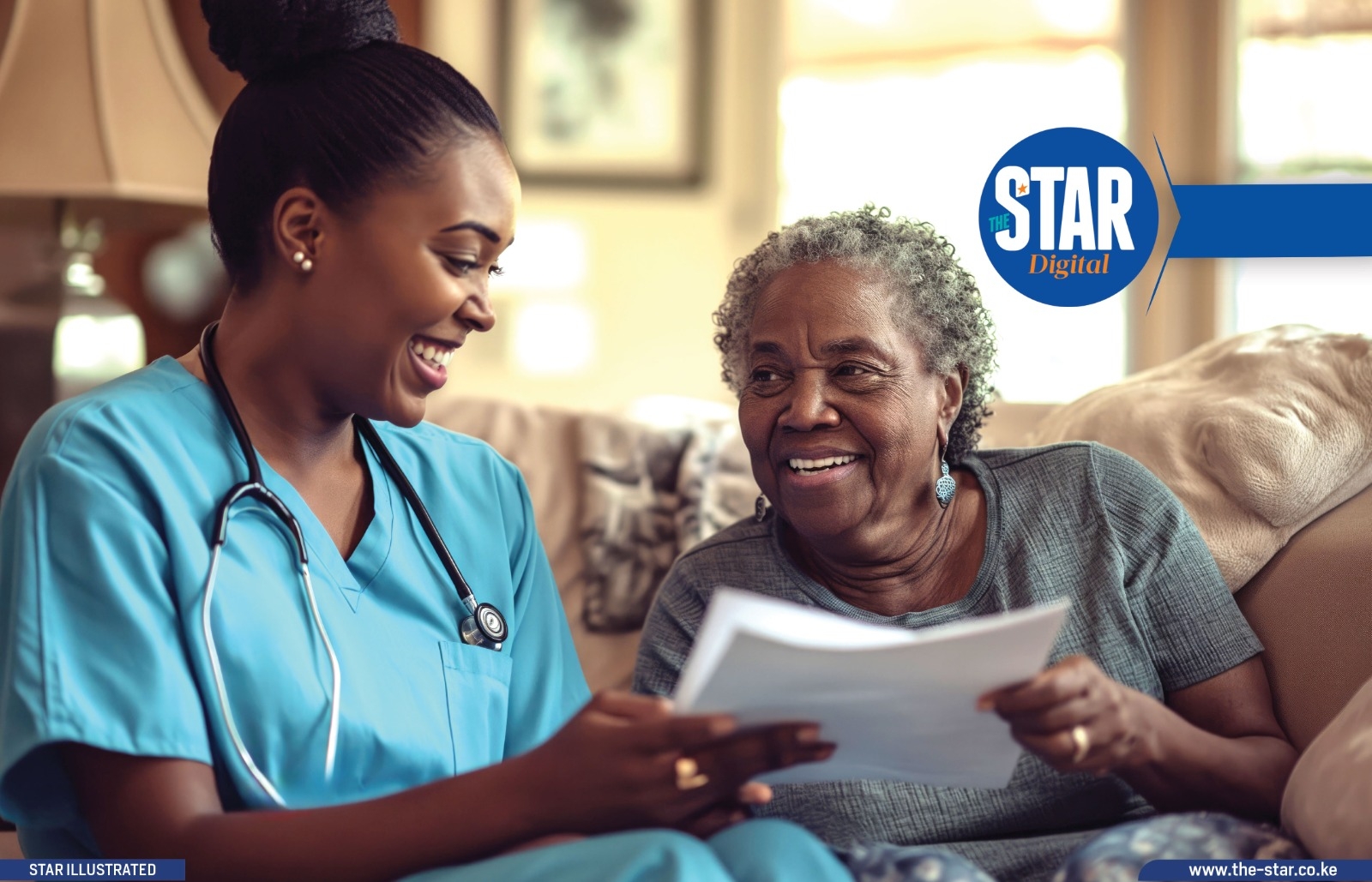
Reasons why caregivers should practice self care
Prioritising self-care helps individuals stay physically and mentally strong.
Counselling psychologist Benson Nyagaka says caregiving, though noble, silently tests the limits of human endurance.
In Summary

Audio By Vocalize

When 53-year-old Joel
Omweri from Kenyenya subcounty in Kisii first began complaining of hand cramps
in 2002, his wife, Mary Nyabeta, who was aged 51 years at the time, did not
think much of it.
The couple did not know
that this ailment was the onset of a 22-year journey of caregiving, personal
endurance and quiet sacrifice.
Nyabeta narrates to KNA
how the signs started subtly: small tremors, stiffness and a growing difficulty
in picking tea leaves on their farm. By 2004, the symptoms had
intensified.
Her husband's movements
had slowed down, his stride faltered and the once-energetic farmer grew weaker
by the day. Hospital visits became frequent, but with no conclusive answers.
They opted to seek
further treatment at Tenwek Mission Hospital in Momet, where they finally got a
diagnosis: Omweri had Parkinson’s disease.
Omweri then started his
treatment with Sinemet to alleviate the symptoms. For a short interlude, the medication gave them hope and
the 53-year-old could move almost normally on some occasions, but as time went
on, the disease advanced.
His muscles stiffened,
his speech slurred and his hands shook uncontrollably. Soon, his wife was
feeding, bathing, and turning him in bed at night.
The care gradually became
a full-time responsibility that defined Nyabeta’s life for more than two
decades.
Owing to the demands of
tending to her husband round the clock, her world shrank and this was evident
by the trips to the market which stopped, conversations with friends faded, and
days turned into years spent within the same compound.
Nyabeta focused entirely
on her spouse’s needs, ensuring that he ate, took his medicine, and stayed
comfortable. The passage of time became measured in his good and bad days
rather than months or seasons.
The couple had married
in 1969, raising six children together and their faith strengthened when they
became born-again Christians in 1982.
Whenever exhaustion and
loneliness crept in, Nyabeta reminded herself of their nuptial vows and God
whom she believed carried her through the odyssey.
Even as Omweri’s body
weakened with the passing of time, his mind remained sharp and they continued
making family decisions together, guiding their children.
Life on the farm became
harder. With Omweri unable to work, Nyabeta recounts relying on their tea and
coffee plantations for everything.
Each tablet of his
medication cost Sh80 to Sh90, and when money ran out, she borrowed. Missing
even one dose meant a rapid decline in his ability to function.
She spent long and
sleepless nights, often interrupted by the need to turn him in bed. Yet,
through it all, her devotion never wavered.
Nyabeta says she loved
her husband like a child, never harbouring negative thoughts despite the
relentless strain his condition had put her through.
Two weeks before his
passing in November 2024, she recalls Omweri resisting another hospital visit
due to the tiring endless medications.
That morning, she says,
he announced he was finally ready. Nyabeta helped him prepare, dressed him, and
he gave her the small bundle of money he kept by his side. Hours later, he was
gone.
In the months that
followed, she found herself surrounded by silence. The routines that once
filled her days vanished, leaving a hollow stillness that she did not know how
to fill.
Nyabeta says true
marriage demands certainty and intention, the willingness to stand beside each
other through sickness and loss.
Looking back, she sees
not only pain but also purpose, a life shaped by love that endured the slow
unraveling of time and strength.
Despite all this,
Nyabeta says she misses her husband every day and remains thankful for the
years they shared, knowing she gave her all and would do it all again given a
second chance.
“Take care of your
husband and don’t complain. Even when it’s hard, keep caring. God will take
care of you,” she advises.
Counselling psychologist
Benson Nyagaka says caregiving, though noble, silently tests the limits of
human endurance.
Many caregivers find
themselves torn between love and despair as they shoulder responsibilities that
stretch their emotional and physical strength.
Constant vigilance,
managing medication, preventing falls, and attending hospital appointments
raises stress hormones and disrupts sleep, often leading to burnout.
Over time, caregivers
experience what psychologists call anticipatory grief, mourning the gradual
loss of a loved one’s independence and personality long before their passing.
Nyagaka adds that the
signs of strain begin subtly with fatigue, headaches, and poor sleep, but can
quickly evolve into irritability, hopelessness, and emotional numbness.
Some caregivers withdraw
from friends, neglect their own health, or rely on medication or alcohol to
cope.
“The social cost can be
just as profound. Many drift away from community life, and family ties may
become strained. Over time, caregivers risk losing their own identity, being
seen only in relation to the person they care for,” the psychologist says.
Despite the strain,
Nyagaka believes caregiving can remain meaningful when balance and support are
maintained.
He urges caregivers to
seek emotional support, take short breaks, and turn to prayer, exercise
vigilance, or go for counseling to manage stress and grief.
Nyagaka also highlights
the need for stronger policy frameworks to support families dealing with
chronic illness, noting that caregivers are often the invisible patients,
quietly bearing the weight of illness beside those they love.
“You cannot pour from an
empty cup,” he says, alluding to emotional drain that is the toll on
caregivers.
Support groups and
community programmes are essential for patients and caregivers, offering
information, guidance, and a sense of shared experience.
Caregiving, though
heavily demanding, can reveal the deepest form of devotion. It is love stripped
of comfort, defined by patience, faith, and the will to stay the course even if
it means 22 years of unwavering care.

Prioritising self-care helps individuals stay physically and mentally strong.